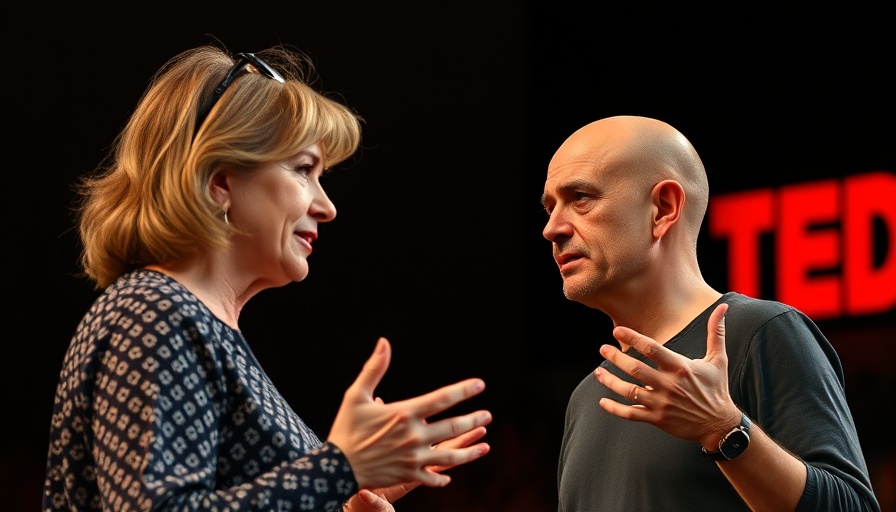
The Power of Leadership: Understanding Bad Bosses
Reflecting on a pivotal moment in our careers often reveals deeper truths about leadership. In a recent TEDx talk by Jamie Woolf and Dr. Chris Bell, the stark reality of bad bosses was explored, highlighting a troubling statistic that 71% of employees report experiencing a toxic boss. This talk not only addresses the personal consequences for workers but also points out the broader organizational impact—lost productivity, diminished creativity, and a poisoned workplace culture.
In 'Why good people become bad bosses,' Woolf and Bell dive into the complex issue of toxic leadership, uncovering insights that fuel our exploration of effective management practices.
Power Blindness: The Hidden Trap of Authority
One central theme in the talk is 'power blindness,' a phenomenon where individuals in leadership roles become disconnected from the experiences and feelings of those they manage. Dr. Bell illustrated how even well-meaning leaders can fall into this trap, often because their status shields them from honest feedback. Such a disconnect can stifle innovation as employees avoid sharing ideas out of fear or intimidation, leading to missed opportunities for growth and progress.
Personal Stories and Shared Experiences
Woolf recounted her own journey from being an oppressed employee to becoming a boss, only to realize she had unknowingly adopted behaviors of the very leaders she despised. This personal narrative resonates widely, as many professionals can relate to the hardships inflicted by poor management. Such revelations are important; they encourage self-reflection among leaders regarding their own behaviors and the environment they cultivate.
Unpacking Leadership Armor
The concept of 'armor' was also central to the discussion. Leaders often wear defenses to navigate the challenges of management, but these can inhibit their relational effectiveness. The talk serves as a clarion call: leaders must be willing to shed their armor to foster more open and equitable workplaces. By doing so, they can enhance communication and promote a culture of vulnerability that allows for more authentic connections.
Changing the Narrative: How to Avoid Bad Boss Syndrome
To prevent falling into the bad boss trap, leaders are encouraged to engage in honest self-reflection. Dr. Bell proposes three transformative questions: What armor do you wear? What might your colleagues be afraid to tell you? What will you change moving forward? This practice of introspection not only promotes personal growth but also cultivates a more inclusive and supportive work environment.
The Ethical Responsibility of Leadership
Woolf and Bell wrap their discussion with a powerful reminder that leaders carry an ethical obligation to dismantle the cycle of toxic management. The call to action is clear: leaders should prioritize support and empathy in their engagements to inspire trust, creativity, and commitment within their teams. By recognizing the weight their decisions impose, they can transform the workplace from one of survival to a realm where innovation and respect thrive.
In the realm of workplace dynamics, the impact of leadership extends far beyond immediate managerial responsibilities. It shapes the entire organizational culture, influencing creativity and innovation in far-reaching ways. Bad bosses can stifle potential, while good leaders promote discovery and inspiration within workplace teams.
Ultimately, the journey toward improved leadership begins with introspection. As the TEDx talk powerfully illustrates, by understanding the mechanics behind bad bosses, we can make significant changes in our management styles that foster healthier, more productive workplaces. The question now remains: Are you ready to confront the reflections in your leadership mirror?
 Add Row
Add Row  Add
Add 




Write A Comment